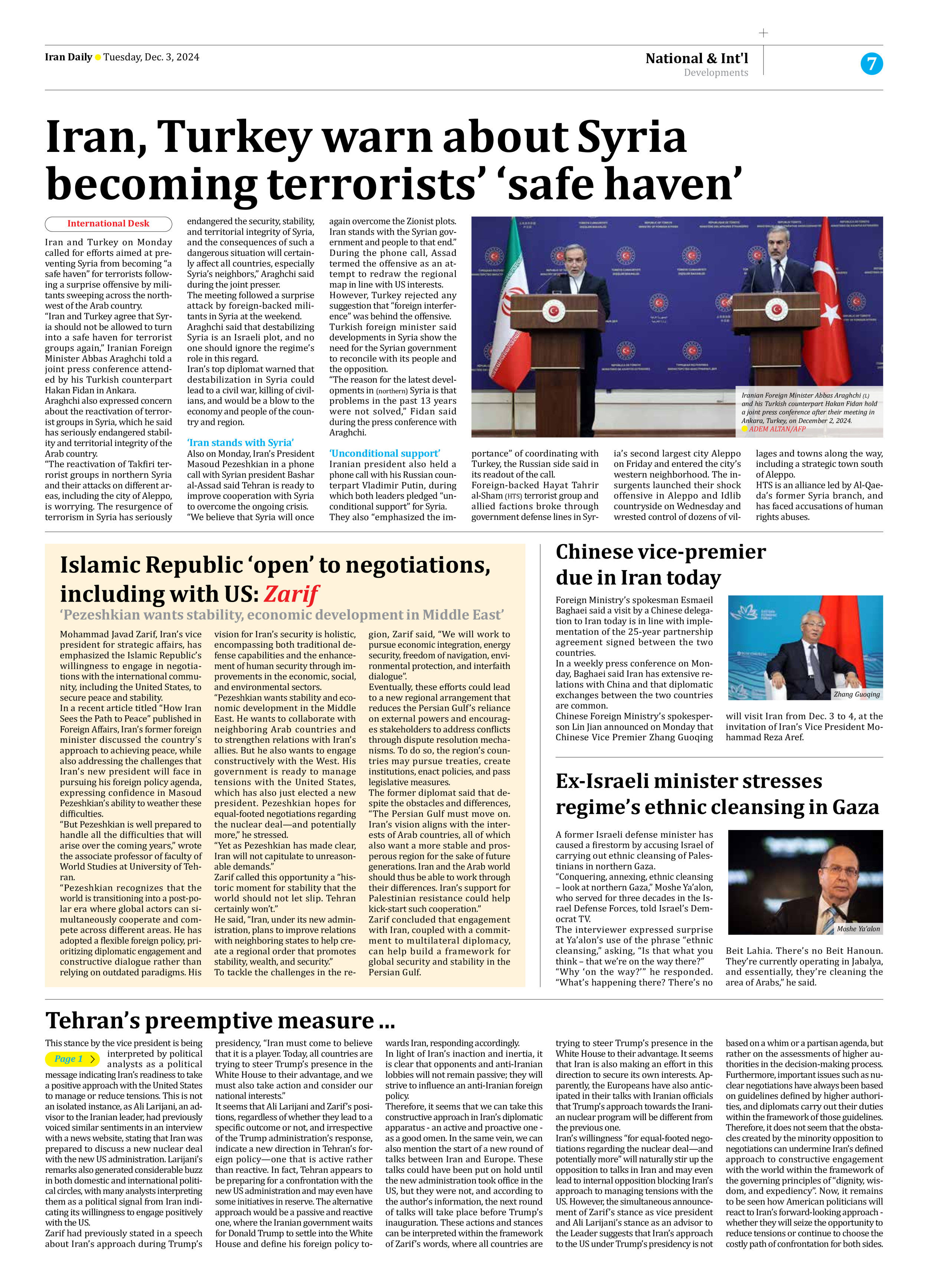
Tehran’s preemptive measure ...
Page 1
This stance by the vice president is being interpreted by political analysts as a political message indicating Iran’s readiness to take a positive approach with the United States to manage or reduce tensions. This is not an isolated instance, as Ali Larijani, an advisor to the Iranian leader, had previously voiced similar sentiments in an interview with a news website, stating that Iran was prepared to discuss a new nuclear deal with the new US administration. Larijani’s remarks also generated considerable buzz in both domestic and international political circles, with many analysts interpreting them as a political signal from Iran indicating its willingness to engage positively with the US.
Zarif had previously stated in a speech about Iran’s approach during Trump’s presidency, “Iran must come to believe that it is a player. Today, all countries are trying to steer Trump’s presence in the White House to their advantage, and we must also take action and consider our national interests.”
It seems that Ali Larijani and Zarif’s positions, regardless of whether they lead to a specific outcome or not, and irrespective of the Trump administration’s response, indicate a new direction in Tehran’s foreign policy—one that is active rather than reactive. In fact, Tehran appears to be preparing for a confrontation with the new US administration and may even have some initiatives in reserve. The alternative approach would be a passive and reactive one, where the Iranian government waits for Donald Trump to settle into the White House and define his foreign policy towards Iran, responding accordingly.
In light of Iran’s inaction and inertia, it is clear that opponents and anti-Iranian lobbies will not remain passive; they will strive to influence an anti-Iranian foreign policy.
Therefore, it seems that we can take this constructive approach in Iran’s diplomatic apparatus - an active and proactive one - as a good omen. In the same vein, we can also mention the start of a new round of talks between Iran and Europe. These talks could have been put on hold until the new administration took office in the US, but they were not, and according to the author’s information, the next round of talks will take place before Trump’s inauguration. These actions and stances can be interpreted within the framework of Zarif’s words, where all countries are trying to steer Trump’s presence in the White House to their advantage. It seems that Iran is also making an effort in this direction to secure its own interests. Apparently, the Europeans have also anticipated in their talks with Iranian officials that Trump’s approach towards the Iranian nuclear program will be different from the previous one.
Iran’s willingness “for equal-footed negotiations regarding the nuclear deal—and potentially more” will naturally stir up the opposition to talks in Iran and may even lead to internal opposition blocking Iran’s approach to managing tensions with the US. However, the simultaneous announcement of Zarif’s stance as vice president and Ali Larijani’s stance as an advisor to the Leader suggests that Iran’s approach to the US under Trump’s presidency is not based on a whim or a partisan agenda, but rather on the assessments of higher authorities in the decision-making process. Furthermore, important issues such as nuclear negotiations have always been based on guidelines defined by higher authorities, and diplomats carry out their duties within the framework of those guidelines.
Therefore, it does not seem that the obstacles created by the minority opposition to negotiations can undermine Iran’s defined approach to constructive engagement with the world within the framework of the governing principles of “dignity, wisdom, and expediency”. Now, it remains to be seen how American politicians will react to Iran’s forward-looking approach - whether they will seize the opportunity to reduce tensions or continue to choose the costly path of confrontation for both sides.







